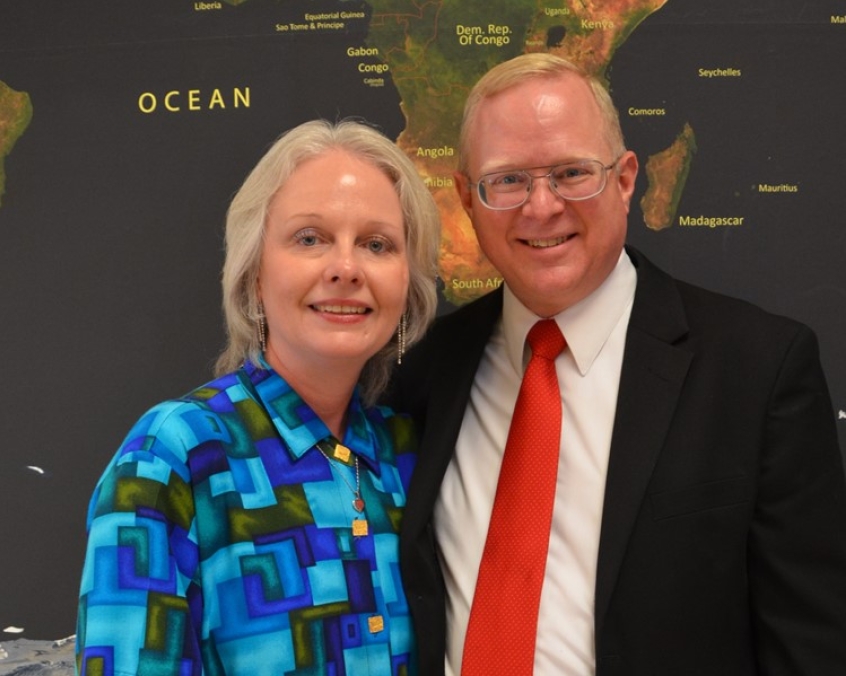Hundreds of churches in Russia are using the football World Cup to avoid the country's hostile evangelism laws.
Russia is now listed as one of the worst countries in the world for religious freedom because of its ongoing crackdown against religious minorities, foreign missionaries, evangelists and Jehovah's Witnesses.
The so-called 'Yarovaya Law', introduced in 2016, bans any evangelism or sharing of faith outside government-sanctioned churches. The crackdown on 'missionary activity' is part of Moscow's anti-terrorism laws but has targeted anything from prayer meetings in homes and posting worship times on a religious website to praying in public.
So instead hundreds of churches around Moscow will use the World Cup to host big screen events over the next month. Second only to ice hockey in popularity, the football World Cup has created a frenzy across the former Soviet state. Russia's 5-0 victory over Saudi Arabia in the opening game of the tournament has only heightened the excitement.
'This is an unprecedented opportunity, especially at a time when the Iron Curtain that cracked down on Christianity during the Soviet era has been strictly limiting public missionary activity and evangelism under the guise of anti-terrorism,' said Sergey Rakhuba, president of the US-based Mission Eurasia, which is coordinating the campaign.
'This fresh, strategic approach, which actually is a demonstration of the power of "the gift of hospitality", is needed in the current political and social climate.'
Small evangelical churches are hoping to escape attention from the Kremlin, which wants to avoid negative publicity over its record on human rights over the World Cup.
While religious minorities including evangelicals, who make up around one per cent of the population, have suffered under Russia's laws, the Russian Orthodox Church (ROC) has boomed.
After heavy persecution under the Soviet era around 70 per cent of the population are now members of the ROC and it has grown to be the largest and most powerful of the 14 Orthodox Churches with 144 million members, 368 bishops and about 40,000 priests and deacons.
President Vladimir Putin has made the national church emblematic of his socially conservative values, including his opposition to gay marriage and abortion .
But one of the victims of Putin's Yarovaya Law is American missionary Donald Ossewaarde, a Baptist preacher living in Oryol, who was expelled for hosting a church meeting in his house. He says the ROC is used 'as a political tool' by Putin.

'With his Communist KGB background I cannot believe he really is a true Christian but he finds it very useful to present himself in that way,' Ossewaarde said in an interview with Christian Today last year.
'So he very publicly attends services in the holidays. He and the Patriarch are often photographed together. They are obviously colleagues supporting one another.
'They [Russian Orthodox leaders] are obviously happy he is president and he [Putin] often speaks of the Orthodox Church as the guarantor of Russian values.'
But with roughly 90 per cent of all tickets sold across the competition's 64 matches, according to the Moscow Times, football fans coming to watch matches in churches gives Russia's beleaguered evangelicals an opportunity.
They will be given specially designed Russian New Testaments alongside popcorn and sunflower seeds.
The booklets also contain a QR code that links with a evangelical app and 70 pages of discipleship materials.
Walter Kulakoff, the ministry's vice president of ministries and church relations, said: 'The strategic key to the Scripture distribution and follow-up is that it will be handled solely by Russians and registered local churches in Russia.'
Rakhuba added: 'We are now seeing how the law is being enforced by the government, and we are becoming increasingly concerned. The restrictions have had a discouraging impact on missions, evangelism and church growth in Russia. They have forced churches and our young leaders to be very creative about how they share the gospel.'













